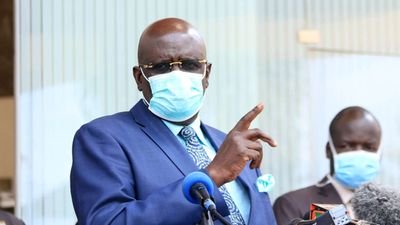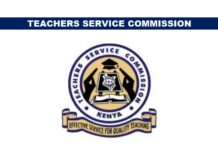
The private education players feel the decision will force many of them to close shop and default in paying many loans which they have been serving with financial institutions. Education Cabinet Secretary George Magoha on Thursday, after meeting with education stakeholders who form the Corona virus disease (Covid-19) education emergency task force, announced that all Teacher Training Colleges (TTCs), Technical Vocational Education Training (Tvet) and universities will reopen for face-to-face sessions in January, next year
“A survey of all TTCs, universities and Tvet institutions has shown that few of them have put in place necessary measures in compliance with the Ministry of Health’s Covid-19 guidelines. This is why they can’t be reopened next month as earlier anticipated,” Magoha said.m
But private institutions are crying foul, stating that though they are part of the Dr Sarah Ruto-led emergency committee, their views were not considered.The Kenya National Private Colleges (Kenapco) said the decision to open colleges in January will cost them dearly.“We have thousands of tutors teaching 260,000 students in private Tvet(s). A total of 217 of our institutions have been closed since March when all learning institutions were closed. The colleges’ owners and teachers have no cash. They depend on fees to survive,” says Ekrah Ndung’u, Kenapco secretary general, adding that their members are likely to die of hunger than Covid-19.She regretted that most of their members can’t pay rent for their premises and can’t go to banks for loans to pay the same.
“When learning institutions were closed on March 16, some of our students were sitting Kenya National Examination Council exams. It makes sense to allow them and other finalists finish writing the tests. Covid-19 will be with us for some time,” she said, adding that many of their colleges have capacity for thousands of students and it won’t be a problem for them to open for specific cadres.Mutheu Kasanga, education sector board chairperson of Kenya Private Sector Alliance, said private education sector players depend solely on fees and the decision to suspend learning until next year is punitive.“Public universities and colleges rely on capitation from government. Private colleges rely on fees by students. We need to leapfrog the education sector and think of innovative ways of engaging our youth during this pandemic,” she said.
Magoha said a robust multi-sectoral approach will be employed to step up preparedness for reopening universities and colleges in January in compliance with Ministry of Health protocols on mitigating the Covid-19 effects










Am a student at Catholic University of Eastern Africa. You rely on the school fees paid by the parents yet the parents by then are struggling to get something on table, how will they provide the school fees if they aren’t able to pay rents.
I’m deeply sympathetic to the plight of Private Institutions of Education owners but I’m not about to send my child to any of them soon, that’s until I am satisfied that the pandemic is contained. On the other hand teachers committing suicide due to hardships is a sorry testimony to what kind of people we’re raising up. I need a strong personality mentoring my children not someone who caves in due to what everyone is going through. Over the years I have searched for online schools in Kenya but I have found none, not even universities and that speaks volumes about our institutions innovative streaks. Open University of Tanzania has been offering online classes long before COVID19, foreign colleges are bombarding us with offers of education opportunities, in Kenya the vaunted regional IT they are still stuck in brick and mortar classrooms. Let them die if they have to.
Iam an art instructor i work mainly with private institutions and schools and trust me its hard right now but saying that teachers are committing suicide over hardships thats not okay to say we are supposed to be examples on how to survive through hardships not take the easy way out.
Then again this children are not just your end of the month pay cheque, they are human beings and they need to be safe and protected from this virus if safe means they stay at home then thats okay let them stay at home until all safety measures are put in all learning institutions for this children to be safe.if you are a parent you know. Thank you.
Private school teachers are suffering most, government please consider all BOM Teachers in the country. Am 100% that most of you who are holding high seat there in government your children are in or were in private school. Consider every teacher in kenya coz we are all citizens.